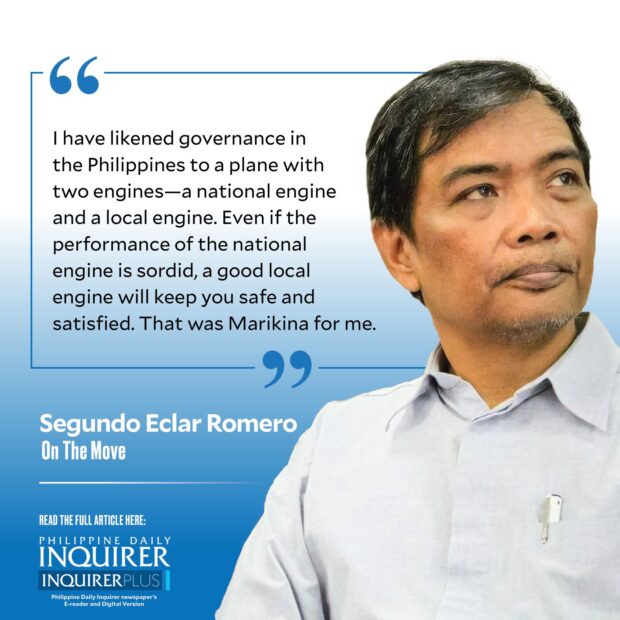Our Bayani

Bayani had a systematically sequenced urban transformation process in mind, starting with highly visible, tangible, and disruptive innovations. First, he set the cardinal rule that sidewalks are the boundary between the public and private domains. If you use the sidewalk to store your broken car or refrigerator, it will be taken away by the local government as trash. Roads are public, and they must be kept open.
Bayani was effective as a mayor because he marched to an inner drum, and he disdained those who were tentative, ambiguous, and confused in their actions. The first time I saw him was in a Metro Manila traffic meeting where mayors and law enforcers were present. He chastised police generals and colonels, telling them that it was not their role or duty to be popular with the people by issuing fawning public statements. Those solicitous actions, he said, were the domain of politicians.
Article continues after this advertisementI realized the reach of this inner logic when I brought my political science practicum class on nongovernmental organizations (NGOs) to meet him during his first term. In so many words, he told us that he did not welcome NGOs in Marikina because their presence and actions were evidence that the local government was doing its job poorly. In a well-functioning local government, he said, there was no need for NGOs.
One early morning in 2000, I was awakened by a call from my friend Rostum Bautista. He heard from the radio that there was a fire along Martilyo Street in Marikina where I lived. I looked out the window and was shocked. The house next door was on fire! But remarkably the Marikina fire department was already on the scene, firemen had doused the fire, and only thick smoke billowed from the edges of the roof as they continued to pump water into the ceiling.
Years later, I would be able to video an entire episode where I chanced upon a house on fire along Apitong Street. Marikina firetrucks began arriving, their sirens blaring. There were two huge, shiny, new fire trucks, and two medium-sized barangay fire trucks that responded, snuffing the fire before it could spread in a dense neighborhood. It was quite a welcome overkill spectacle to the relief and cheers of the people, whose hearts were aquiver.
Article continues after this advertisementThis, to me, was not happenstance. It was Bayani’s handiwork. It was an unmistakable outcome of the bold governance and systematic management that this mechanical engineer brought to the city of Marikina. This showed in the solid waste management system, the flood management system, the road maintenance cleanliness system, the parks and recreation system, and the transparency and accountability showcase that was the Marikina Municipal Hall. He played a pivotal role in fostering an active mobility and bike culture through the construction of kilometers of bike lanes.
Bayani fell to his death while repairing the roof of their house in Marikina on Sept. 22. Unlike many heroes who were robbed of the zenith of their service to the nation, Bayani finished his tour of duty. When he offered to return as mayor in the May 2022 elections, he lost. This did not mean the people were no longer grateful for his legacy, but their way of telling Bayani, “Mayor BF, you have done more than enough. Marikina is in good hands. It is time you get your well-deserved rest.” Despite the tragic circumstances of Bayani’s death, the love and respect of the people for him shine through. The real legacy of Bayani Fernando is the civic maturity and good governance the people of Marikina have attained. Bayani’s Marikina is a compelling beacon to the rest of the Philippines.
doyromero@gmail.com
















